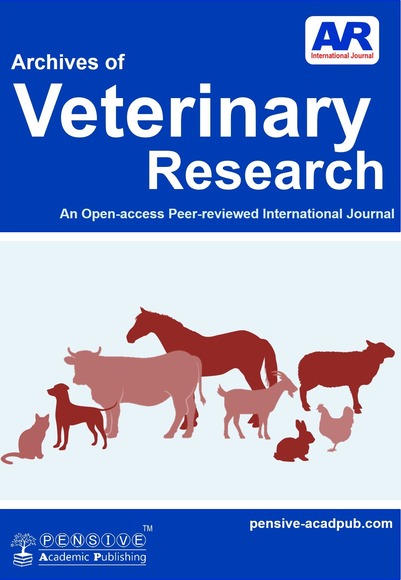Reviewer Guideline
General Guidance
The primary purpose of peer review is providing the Editor with the information needed to reach a fair, evidence-based decision that adheres to the journal’s editorial criteria. Review reports should also help authors revise their paper such that it may be accepted for publication. Reports accompanied by a recommendation to reject the paper should explain the major weaknesses of the research; this will help the authors prepare their manuscript for submission to a different journal.
Peer reviewers should adhere to the principles of COPE's Ethical Guidelines for Peer-reviewers.
Confidential comments to the Editor are welcome, but they must not contradict the main points in the report for the authors.
Peer reviewers should assess papers exclusively against the journal’s criteria for publication.
- The following conventions should be respected:
- Reviewers should review the peer review policy of the Journal before revealing their reviewer role.
- Reviews should be conducted objectively.
- Personal criticism of the author is inappropriate, as are defamatory/libelous remarks.
- Reviewers should express their views clearly with supporting arguments and references.
- Reviewers should declare any potential competing interests.
- Reviewers should decline to review manuscripts with which they believe they have a competing interest resulting from competitive, collaborative, or other relationships or connections with any of the authors, companies, or institutions connected to the papers.
- Reviewers should respect the confidentiality of material supplied to them and not discuss unpublished manuscripts with colleagues or use the information in their own work.
- Any reviewer who wants to pass a peer review invitation onto a colleague must contact the journal in the first instance.
Concerns relating to these points, or any aspect of the review process, should be raised with the editorial team.
Reviewer Discount
If you review for a journal in the Archives of Veterinary Research then you are entitled to a 50% discount on the article processing charge for your next submission to a Archives of Veterinary Research. This discount must be claimed within 1 year of completing your review and discounts cannot be combined.
Ethical guidelines for peer reviewers
- Peer reviewers must follow these ethical guidelines when reviewing for Archives of Veterinary Research journal articles:
- Reviewers must give unbiased consideration to each manuscript submitted. They should judge each on its merits, without regard to race, religion, nationality, gender, seniority, or institutional affiliation of the author(s).
- Reviewers must declare any conflict of interest before agreeing to review a manuscript. This includes any relationship with the author(s) that may bias their review.
- Reviewers must keep the peer review process confidential. They must not share information or correspondence about a manuscript with anyone outside of the peer review process without the explicit permission of the editor.
- They must not enter unpublished manuscript files, images or information into databases or tools that do not guarantee confidentiality, are accessible by the public and/or may store or use this information for their own purposes (for example, generative AI tools like ChatGPT).
- Reviewers must prepare their report by themselves, unless they have permission from the journal to involve another person. They must also not impersonate others during the review process.
- Reviewers must not use artificial intelligence tools to generate manuscript review reports, including LLM based tools like ChatGPT.
- Reviewers should provide a constructive, comprehensive, evidenced, and appropriately substantial peer review report. Reviewers are responsible for ensuring any references included within their report are accurate and verifiable.
- Reviewers must avoid making statements in their report which might be interpreted as questioning any person’s reputation.
- Reviewers should make all reasonable effort to submit their report and recommendation on time. They should inform the editor if this is not possible.
- Reviewers should call to the journal editor’s attention any significant similarity between the manuscript under consideration and any published paper or submitted manuscripts of which they are aware.
How to write a peer review report
Below is a step-by-step guide to help you review a manuscript and make your recommendation.
Research the journal
Visit the journal homepage on Archives of Veterinary Research and read the aims and scope and instructions for authors to get a sense of the journal’s scope and content. This will help you determine if the paper you’re reviewing is suitable for the journal or not.
Read the paper
While you read the paper remember to check over any tables, figures, or supplementary data. Bear in mind that the main factors you should provide advice on are:
- The originality, presentation, and relevance of the manuscript’s subject matter to the readership of the journal.
- The accuracy and validity of the methodology, and whether the conclusions are appropriately supported.
Write your report
There are two purposes for your report: to provide the editor with information to enable them to make a decision, and to provide feedback to the author to help improve their work.
It is often helpful to begin with a brief summary of the work and the main findings as you understand them, along with a summary of your overall opinion.
Being critical whilst remaining sensitive to the author isn’t always easy. A good rule is to direct your criticism towards the work carried out and avoid comments that may be interpreted as personal criticism of the author.
Here are a few things to consider when writing your report:
- Your comments must be suitable to send to the author. Please make constructive suggestions, seek clarification on any unclear points, and ask for further elaboration. Remember that authors will welcome positive feedback as well as constructive criticism.
- If the paper reports original research, comment on whether the methods are appropriate and whether the work was carried out to the standards expected within your field.
- Note any aspects that you are unable to assess, whether this is due to lack of clarity or because it is outside your expertise.
- You should make suggestions on how the author can improve clarity, conciseness, and the quality of the presentation.
- Confirm whether you feel the subject of the paper is sufficiently interesting to justify its length. If you recommend shortening, mention specific areas where you think this is required.
- It’s not the reviewer’s job to edit the paper for spelling, grammar, etc., but it is helpful if you can note specific points where the technical meaning is unclear.
- You may disagree with the author’s opinions, but you should allow them to argue their case, provided their evidence supports it.
- Reviewers are not expected to detect research integrity concerns in manuscripts, but your expertise may allow you to spot potential issues that editorial staff or the editor have missed. If you suspect misconduct, please let the publisher or the editor know as soon as possible.
Provide detailed feedback
Comments should be carefully worded so the author understands what actions they need to take to improve their paper, rather than just stating what is wrong.
Try to write simply and avoid rhetorical flourishes that may lead to misunderstandings. Also, avoid generalized or vague statements as well as negative comments which aren’t relevant or constructive.
Example of peer review comments
Please note that these are just examples of how you might provide feedback on an author’s work. You should, of course, always tailor your review to the paper in question and the specific requirements of the journal and the editor.
Positive comments
- The manuscript is well-written in an engaging and lively style.
- The level is appropriate to the journal’s readership.
- The subject is very important, it’s currently something of a “hot topic”, and this study makes significant contributions.
- This manuscript ticks all the boxes I have in mind for a paper in this journal. I have no hesitation in recommending that it be accepted for publication after a few typos and other minor details have been attended to.
- Given the complexity involved, the author has produced many positive and welcome outcomes. The literature review offers a useful overview of current research and policy, and the resulting bibliography provides a very useful resource for current practitioners.
- This is a well-written article that identifies an important gap.
- While this study is largely confirmatory, it is still a useful and welcome contribution.
- I have checked over the methods and the supplementary data, and I found the study to be well carried out and appropriately controlled, with no obvious errors.
Constructive feedback
- The abstract is very lengthy and goes into detailed accounts that are best suited for the article’s main discussion sections. I suggest the author reduces this section to keep only the most important elements.
- I would strongly advise the author to rewrite their introduction, analysis, and discussion to produce a more contextualized introduction to…
- The authors have used X approach and therefore I would expect to see additional controls/an explanation of the ethical approvals/deposition of the data in a public database. It is essential that the authors provide this information.
- Citations to several important articles need to be added, as follows …
- The data shown in table 1 and figure 3 appear to indicate X, whereas the Results section states Y. The authors should carefully check …
- This research reveals an interesting finding about … However, I would like to see more discussion of exactly what this finding means and its implications.
- I would have wished to see more information on …
- I don’t think that this article contains enough robust data to evidence the statement made on page X, lines Y–Z. This should be toned down.
- This discussion could be expanded to explain…
- The author could strengthen the paper by…
- The paper would be significantly improved with the addition of more details about…
- Unfortunately, I have identified a potential major flaw in the work, which I believe will be difficult to resolve unless the authors are able to do the following additional analyses …
- To make this paper publishable, the author needs to respond to the following substantive points…
Linguistic alterations
- This paper would benefit from some closer proofreading. It includes many linguistic errors (e.g. agreement of verbs) that at times make it difficult to follow. It may be useful to engage a professional English language editor following a restructuring of the paper.
- The paper would benefit from stylistic changes to the way it has been written for a stronger, clearer, and more compelling argument.
- There are a few sentences that need rephrasing for clarity.
Make a recommendation
Once you’ve read the paper and have assessed its quality, you may need to make an overall recommendation to the editor to help them make a decision. The specific options used by a journal will vary, but the key recommendations are:
- Accept: The paper is suitable for publication in its current form.
- Minor revision: The paper will be ready for publication after light revisions. Please list the revisions you would recommend the author makes.
- Major revision: The paper needs substantial changes such as expanded data analysis, widening of the literature review, or rewriting sections of the text.
- Reject: The paper isn’t suitable for publication in this journal, or the revisions needed are too extensive for the submission to continue being considered in its current form. It is helpful to the editor if you can explain (in confidential comments if necessary) whether your recommendation is based upon the level of advance or whether it is due to technical flaws.
Revisions
When authors make revisions to their article, they are asked to include a list of changes and any comments for the reviewers.
The revised version may be assessed by the editor if only minor revisions were requested or may be returned to the original reviewers if available. You will then be asked to affirm whether the revisions are satisfactory.




